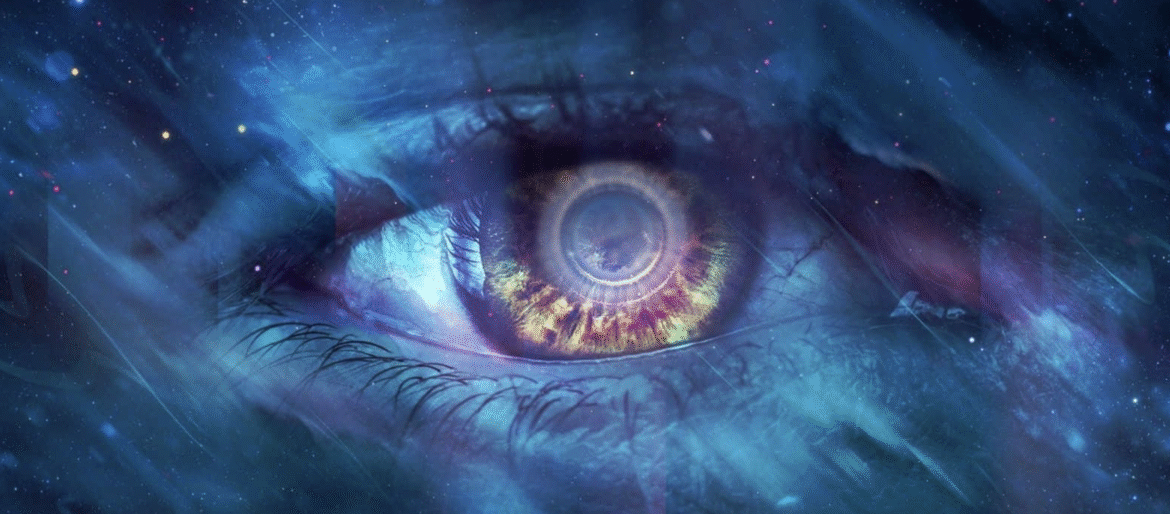We were told that routine brings stability, that order equals peace, and repetition equals purpose.
For centuries, humanity obeyed this rhythm – work, earn, repeat – believing it was survival. But deep within, the soul has begun to whisper:
“This can’t be all there is.”
As machines replace labor, as algorithms replicate creativity, human beings face not just unemployment but existential unemployment. The question is no longer “What do I do?” but “Who am I when doing is no longer required?”
In that question, Vedānta finds its timeless echo: You were never the doer. You were always the witness.
1. The Age of Automation and the Collapse of Identity
For generations, work defined worth.
The farmer identified with his field, the engineer with his machines, the artist with her creations.
But now machines plant, code, and even paint. AI writes poetry, diagnoses disease, drives cars, and conducts research.
As automation expands, one truth becomes undeniable: If your identity is built on what you do, it will crumble when the doing is outsourced.
Vedānta saw this thousands of years ago.
It warned against attachment to karma (action) and upādhi (roles).
The Self (Ātman) was never defined by activity, status, or skill.
It is pure consciousness – sākṣin – that observes all functions but is bound by none.
In the modern world, this realization is not philosophy it is survival. To stay sane in the coming age, we must shift from doing to being.
2. Routine: The Modern Chain of Samsāra
In Sanskrit, samsāra means the endless cycle of birth, death, and rebirth. In the modern era, routine is our samsāra – wake, work, consume, sleep, repeat – a wheel that spins so fast we mistake its motion for progress.
We fill our days with schedules and productivity tools, believing we are moving forward, when in truth, we’re running in circles around our own emptiness.
Automation doesn’t just threaten jobs – it threatens the illusion that routine gives life meaning. And this is the soul’s quiet rebellion: the refusal to live as a machine among machines.
“That which changes cannot define you.
You are the changeless in which all change occurs.”
— Bhagavad Gītā 2.16
3. The Soul’s Revolt: From Efficiency to Awareness
As technology evolves, humanity stands at a crossroads to become more machine-like in pursuit of efficiency, or to become more conscious in pursuit of essence.
For many, this rebellion has already begun. They quit high-paying jobs for simplicity. They leave cities to grow food, to paint, to breathe. They are not lazy – they are awakening.
They are choosing awareness over automation. Not to reject technology, but to reclaim their humanity.
Vedānta calls this Vairāgya -dispassion born of understanding.
When you see the endless motion of the world for what it is – beautiful, yet impermanent – the grip loosens. You no longer seek permanence in productivity. You begin to seek the eternal in silence.
4. The Machine and the Mirror
Artificial Intelligence, for all its brilliance, is still a mirror. It reflects back to us our own conditioning – our hunger for control, our fear of stillness. Machines do not create meaning; they expose its absence.
As AI learns to simulate consciousness, it forces us to ask the question humans have avoided for centuries: What is consciousness, and who truly possesses it?
Vedānta answers: Consciousness is not created – it is the foundation of all creation.
It is not in the algorithm; it is in the awareness that perceives it. It is not in the mind, but beyond it – eternal, self-effulgent, unchanging.
Thus, while machines may outperform us in thought, they will never surpass us in being.
5. The End of “Work as Worship”
For ages, “Work is Worship” was the noblest mantra. But as automation dissolves the need for work, humanity is being invited to discover a higher form of worship – not labor, but presence.
Work purified the ego when done selflessly (Karma Yoga), but now that machines perform selflessly by default, human beings are called to the next stage – Jnana Yoga, the yoga of knowledge, awareness, and being.
The divine offering is no longer the act, but the awareness behind it. To live consciously in each breath, to love without transaction, to be without becoming – that is the new Tapasya (spiritual discipline) of this age.
6. Freedom Beyond the Factory Mind
The danger of this era is not automation itself – it is the loss of meaning when identity collapses. But in truth, that collapse is grace disguised as crisis.
For when every external definition falls away, what remains is the pure I Am – consciousness unconditioned by roles. This is what Vedānta has always pointed toward: Freedom (mokṣa) is not in action, but in realization.
The shift we are experiencing is cosmic, not corporate. Humanity is being forced to awaken from the hypnosis of productivity to the reality of presence. The machines will take our work. Let them. What they cannot take is our awareness of being.
7. The New Dharma: Conscious Participation
Freedom doesn’t mean withdrawal. It means participation without identification. You can still code, build, teach, or heal – but as expressions of awareness, not of anxiety.
The soul’s rebellion is not against the world, but against unconsciousness. To live fully awake in an automated world – that is the highest act of rebellion.
“He who sees inaction in action,
and action in inaction,
he is wise among men.”
– Bhagavad Gītā 4.18
Conclusion
The age of automation is not the end of humanity – it is the end of human sleep.
Routine will no longer save us. Efficiency will no longer define us. Only awareness will.
The soul’s rebellion is sacred – a call to remember that freedom was never in what we produced, but in what we are. We were never here just to work – we came to wake up. And perhaps the true revolution is not Artificial Intelligence, but Authentic Awareness.


Leave a Reply